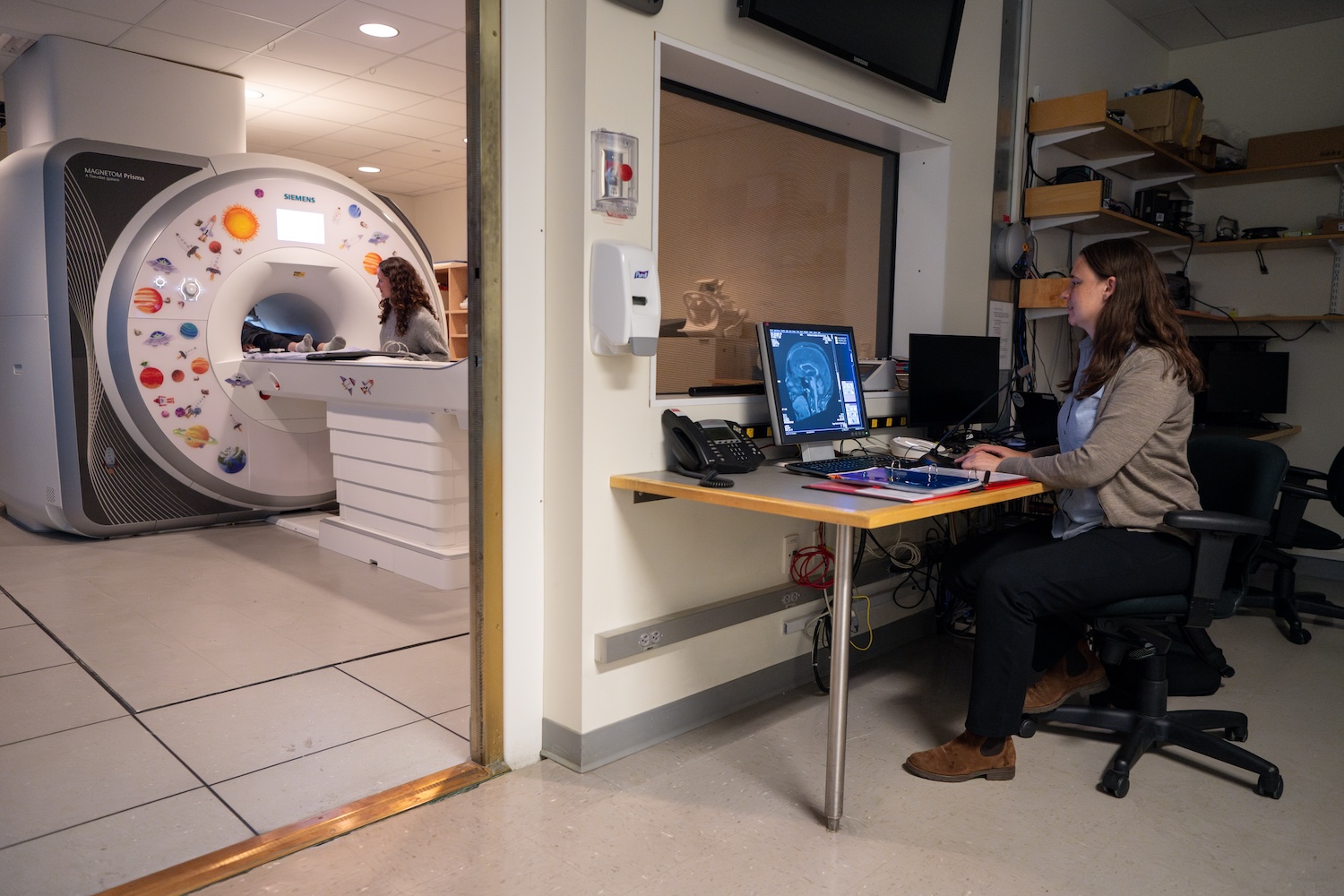Core Facilities

The MIT Department of Brain and Cognitive Sciences is cultivating a culture of interdisciplinary collaboration and innovation. To support these efforts, a number of core facilities and resources are available to researchers in Building 46.
Contacts:
Computational Core:
- Jim DiCarlo, Director
- Shaohao Chen, Computational Support Specialist
Imaging Core:
- Bob Desimone, Director
- Susan Whitfield-Gabrieli, Research Scientist
Machine Core:
- Jim DiCarlo, Director
- Konstantinos Tomadakis and Jose Estrada, Machinists
Under National Eye Institutes (NEI) Core Grant funding, the BCS community has three core facilities that serves our researchers: Imaging, Electronics Shop, and Machine Shop. The machine and electronics shops allow us to fabricate new and original equipment for our research. In addition, they permit the rapid and economical modification and/or repair of existing equipment. Machine shop and electronics shop personnel work in close consultation with researchers to aid in the development of these new tools. To accommodate changes in research needs, we have recently expanded the Machine Shop’s capabilities with new equipment and personnel and have shifted the focus of the Electronics Shop to develop software interfaces for equipment that can be ordered off the shelf or better fabricated elsewhere.
The Imaging Core supports advanced MRI coil development and construction for both human and animal studies as well as advanced, shared computing resources for the analysis of imaging data.
Contact:
- Tak Ko, iPS Core Facility Supervisor/Research Scientist
The iPS Core Facility was launched in November of 2010 by the Picower Institute with generous support from an anonymous donor. Tak Ko, a research from Michigan with years of iPS research knowledge, was successfully recruited to manage the new iPSC facility in May of 2011. The advent of human induced pluripotent stem cells has heralded a new generation of clinical and basic research into human disorders. Patient-derived skin fibroblast cells are reprogrammed into iPS cells and allow researchers to examine a wide variety of diseases directly in human cells. iPS cells also have remarkable therapeutic potential as they can be differentiated into multiple cell types, including neurons, and transplanted back into the donor without the risk of an immune response. Cells derived from patients can also be used to screen novel therapeutic compounds, and because these cells reflect the genetic profiles of their donors, they can be used to study the mechanisms of multiple neuropsychiatric and neurodegenerative disorders.
Contacts:
- John Gabrieli, Director
- Atsushi Takahashi, Assistant Director/MR Physicist
- Steven Shannon, Operations Manager/Research Technologist
The Athinoula A. Martinos Imaging Center at the McGovern Institute is a core facility that provides access to state-of-the-art brain imaging technologies for MIT researchers and their collaborators in the Boston area. A joint project of the McGovern Institute for Brain Research and the Harvard-MIT Division of Health Sciences and Technology, the center also has a close relationship with the Martinos Center for Biological Imaging at Massachusetts General Hospital in Charlestown. The center is directed by John Gabrieli, who is a faulty member in BCS and a member of the McGovern Institute and the Institute for Medical Engineering and Science.
The center, which is housed in the McGovern Institute, offers a variety of imaging technologies, including human magnetic resonance imaging (MRI), small animal MRI, electroencephalography (EEG) and magnetoencephalography (MEG). There is also a mock MRI scanner that is used to adapt subjects, especially children, to the environment of the scanner. The Martinos Center serves a community of researchers who study a wide range of topics in basic and clinical neuroscience. Major research themes at the center include: brain mechanisms of perception, memory, emotion, executive function and social cognition; developmental studies of children, including developmental disorders such as autism and dyslexia; and translational studies on the neural basis of many different psychiatric and neurological disorders.
Contact
Two-photon microscopy revolutionized cellular neuroscience by providing high-resolution fluorescence images of cells within the living brain. Demand for this technology continues to grow, and the McGovern Institute has acquired a shared 2-photon system with support from an NIH stimulus grant. The system is installed on the 6th floor of the McGovern Institute and is available to all MIT neuroscience researchers on a fee-for-service basis. The system was custom-built for the institute by Wisconsin-based Prairie Technologies Inc. and includes two workstations. One workstation is used to examine neurons in culture and provides a precisely controlled environment. The other is used to visualize individual neurons in the intact living brain, revealing both their 3D shape and their electrical activity.
Contact:
- Ian Wickersham, Research Scientist
The Genetic Neuroengineering Group (GNEG) was established as an independent research lab within the McGovern Institute. This collaborative group is made up of multiple researchers from the McGovern and Picower Institutes to develop novel genetic technologies for brain research. It is directed by principal research scientist Ian Wickersham and develppes novel genetic technologies for manipulation of brain function, including trans-synaptic tracing methods based on rabies vectors. Rather than providing a fee for service, GNEG is currently funded by two BRAIN initiative grants via NIH and NSF.

